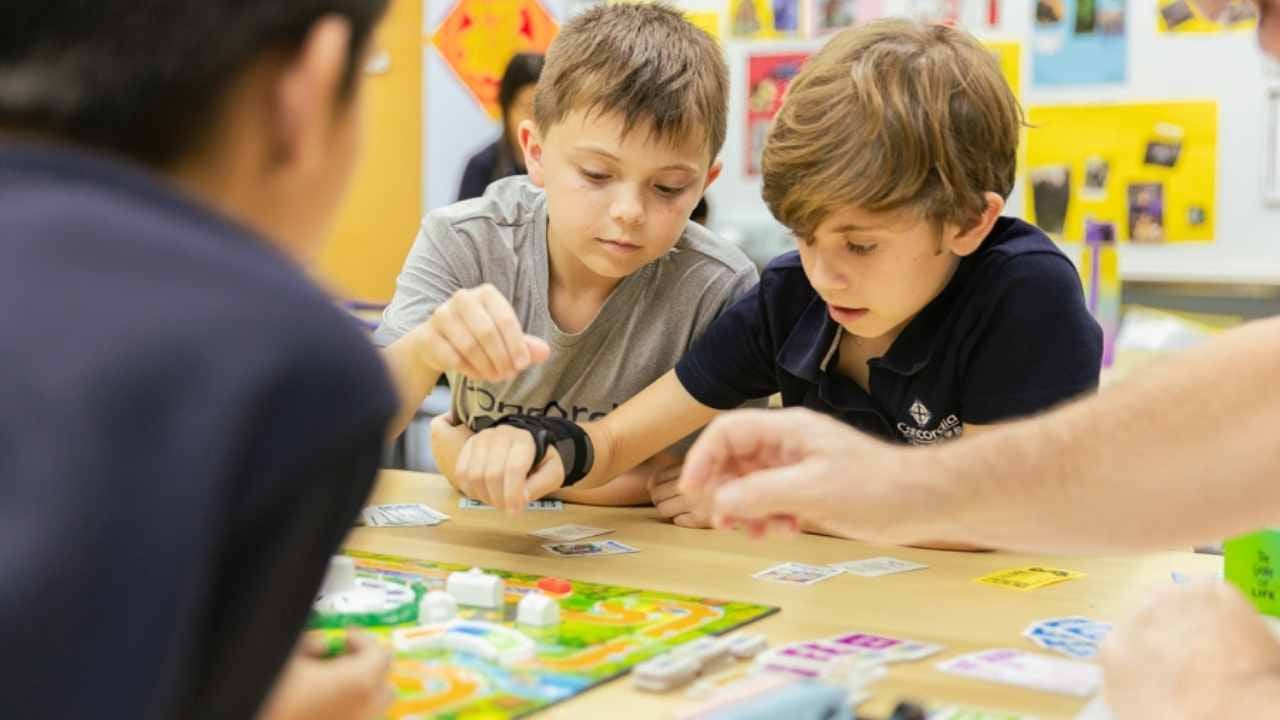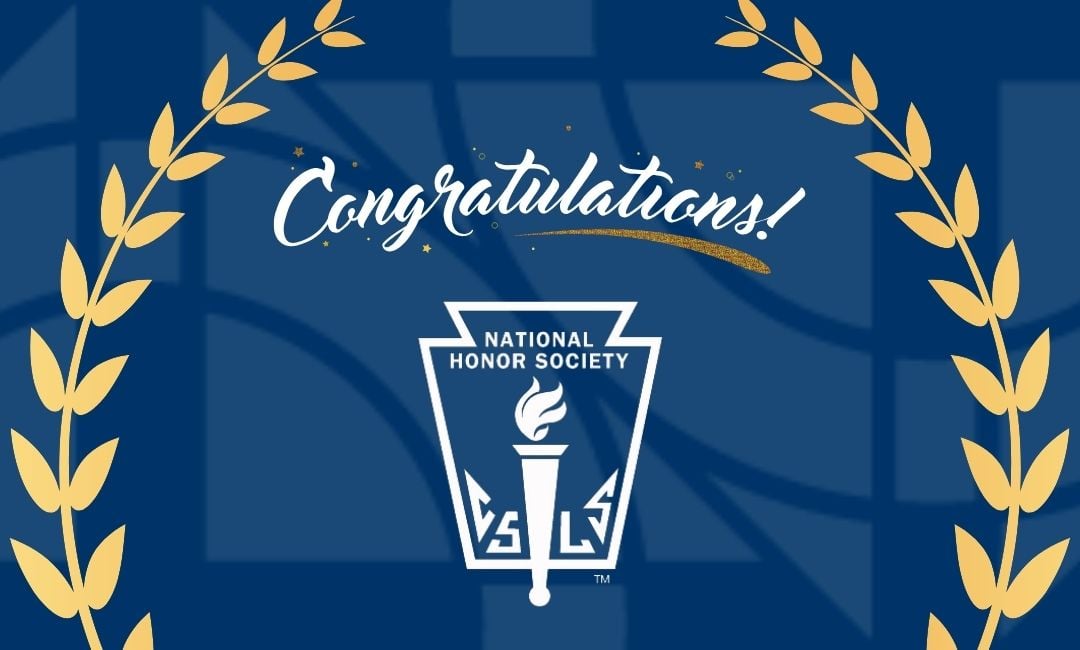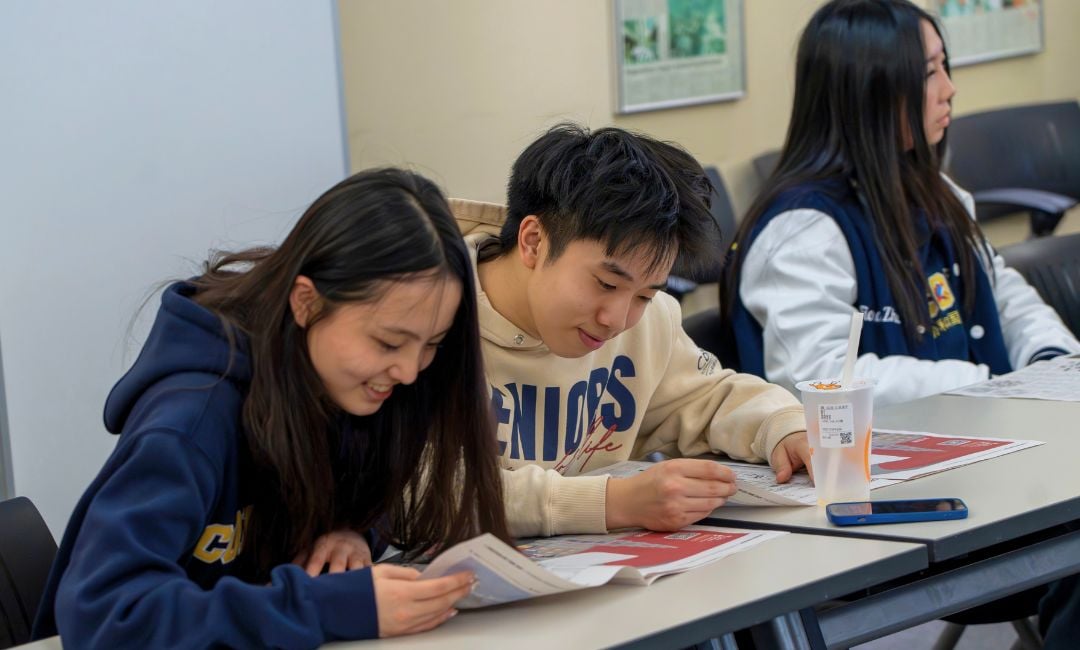
At Concordia International School Shanghai, we do much more than help our students pass the next test. By focusing on fostering deeper learning in our students, this enables them to apply their acquired knowledge to new situations. This is especially relevant when it comes to math learning.
At Concordia, we develop a deeper understanding of concepts in our students by utilizing multiple and varied representations of concepts or tasks, encouraging elaboration, engaging learners in challenging tasks with supportive guidance and feedback, teaching with examples and cases, and using formative assessments; ultimately, we want to motivate our students to learn and to be active participants in their math learning.
“Students at Concordia are not spectators. Math requires engaged learners that actively sharpen their craft through questioning, elaboration, and focused practice,” says Yujiro Fujiwara, a high school math teacher at Concordia.
Below we discuss the details of the learning outcomes of Concordia’s math program in each of our school's divisions so you can see how your child’s math learning will evolve.
Learn more about how we at Concordia measure student academic success here.
Learning outcomes for Elementary school students
At Concordia, our elementary school students are taught using the Bridges in Mathematics 2nd Edition, which the Math Learning Center has formulated. In a Bridges classroom, students discuss math concepts, describe observations, explain methods, and most importantly, ask questions.
“At Concordia, while we capitalize on math applications to engage students, students are encouraged to enjoy math for its own sake,” says Fujiwara.
Students are inspired to find numerous ways to solve math problems and demonstrate different ways of thinking. This method enables students to build more flexible and efficient practices that will help them solve more complex problems as they get older.
The learning outcomes for each grade in the Elementary division are listed below:
Grade 1
The learning outcomes of the Concordia math program for Grade 1 students include:
- Developing skills to add and subtract numbers to 20 using story problems
- Learning addition and subtraction concepts of numbers up to 10
- Learning to count to 120 and place values (ones, tens, hundreds)
- Identifying, sorting, and drawing the different shapes
- Fitting shapes together to make other shapes, solving puzzles, and discussing fractions
Grade 2
The learning outcomes of the Concordia math program for Grade 2 students include:
- Developing skills with addition and subtraction of numbers up to 20
- Learning to add and subtract numbers up to 1,000
- Learning how to measure lengths and solve problems with them
- Learning to identify, describe, compare, combine, and split shapes
Grade 3
The learning outcomes of the Concordia math program for Grade 3 students include:
- Developing multiplication skills for numbers from 0 to 10
- Learning how to multiply with numbers greater than 10
- Learning how to add and subtract with numbers up to 1,000
- Developing skills to work with unit fractions and add and subtract fractions
- Exploring and becoming familiar with division
Grade 4
The learning outcomes of Concordia math program for Grade 4 students include:
- Learning how to find factors and multiples of different numbers
- Learning to compare fractions and breaking fractions into smaller parts
- Learning to compare decimal numbers and finding decimal and fraction equivalents
- Developing efficient strategies for multiplying and dividing multi-digit numbers
- Learning how to calculate area and volume
- Learning how to measure and draw angles using protractors
Are you interested in some additional resources to support your child’s math learning? Here are some additional math resources that could help you and your child find joy in math learning.
Learning outcomes for Middle school students
At Concordia, our middle school students build upon the knowledge they acquired in elementary school and further prepare for the rigor and pace of high school.
Math at the middle school level is carefully crafted to capitalize on each child’s interests and maximize student learning. Each grade level builds on and extends conceptual understanding, so students approach each new challenge from an established foundation. Students will learn the concepts of Pre-Algebra, Algebra 1 and Geometry.
Students who want to study advanced grade level math will have to take a placement test during orientation before school; prior math credits will also be considered.
The learning outcomes by each grade in the Middle school division are listed below:
Grade 5
The learning outcomes of the Concordia math program for Grade 5 students include:
- Increased understanding of the four basic arithmetic operations applied to fractions, decimals, and positive and negative numbers
- Understanding and applying standard measuring units to determine the length and using formulas to determine the volume of simple geometric figures
- Learning the concept of angle measurement and using a protractor and compass to solve problems. Students use grids, tables, graphs and charts to record and analyze data
Grade 6
The learning outcomes of the Concordia math program for Grade 6 students include:
- Mastering the four arithmetic operations with whole numbers, positive fractions, positive decimals, and positive and negative integers. This knowledge is applied to statistics and probability
- Understanding concepts of mean, median and mode of data sets, and learning how to calculate range. Students analyze data and sampling processes for possible bias and misleading conclusions
- Conceptual understanding of ratios and proportions
- Computation of percentages
- Learning about π and the formulas for both the circumference and area of a circle
- Use of letters for numbers in equations involving geometric shapes and ratios to represent an unknown part of an expression
- Learning how to solve one-step linear equations
Grade 7
The learning outcomes of the Concordia math program for Grade 7 students include:
- A better understanding of manipulating numbers and equations and applying the principles
- Understanding the use factoring of numerators and denominators. Students understand how perimeter and area change with a change in scale
- Understanding and applying different representations of fractional numbers and becoming proficient at changing from one to another
- Learning to work with ratio and proportion, computing percentages of increase and decrease, and simple interest
- Learning to solve one and two-step equations and becoming familiar with inequalities
- Improved understanding of integers
Learning outcomes for High school students
At Concordia, high school students identify and explore their passions which will help guide and prepare them for university.
“Students in high school are presented with the task of becoming well versed in mathematics with the ability to transfer and apply their mathematical skills to other subject areas,” says Fujiwara.
Concordia’s high school division offers multiple Advanced Placement (AP) options and Applied Learning courses that provide students with opportunities to deepen their understanding of their subject of choice.
As a member of the Global Online Academy, Concordia offers an array of rigorous credit-bearing courses that allow students to personalize their learning. These courses include:
AL Big Data Analytics
In simple terms, this subject includes the tools, processes, and procedures used to create, manipulate, and manage extensive data sets and storage facilities.
Big Data Analytics encompasses information technology, science, mathematics, and other STEAM areas. Students gain a conceptual understanding and the application theory of Big Data Analytics instead of explicit formulas and technical jargon.
The main objectives of this course are to create awareness, exposure, and applications while being exposed to the realm of big data and its hidden dangers.
As a Concordis High School Applied Learning course, Big Data Analytics includes some hands-on experience utilizing big data analytics to solve some practical, real-life projects. Upon completion, students will be more aware of the idea behind big data.
Algebra 1
This course was designed for students to develop core knowledge of mathematics. Students become familiar with algebraic expressions, formulas, linear equations and inequalities.
They acquire the skills to work with exponents, various degrees of polynomials, proportions, functions and radicals. An emphasis is placed on problem-solving and real-life applications. After studying Algebra 1, students will be advised to take up Geometry or Honors Geometry by their Algebra 1 teacher and the math department.
Algebra 2
With this course, students will develop their mathematical core knowledge. The course includes further work in solving and graphing linear equations and working with systems of equations, matrices, complex numbers, and various functions, including quadratic, polynomial, exponential, logarithmic, and rational.
The course that follows Algebra 2 is Advanced Algebra with Applications. However, a student may earn placement in Precalculus if they earn high grades in the Algebra 2 course for the year and if they are willing to study Trigonometry independently.
Algebra 3
This course looks at the functions learned in Algebra 2, such as Linear, Quadratic, Polynomial, Radical, Exponential, Logarithmic and Rational, and adds the Trigonometric Functions to them. Students will also learn a unit on probability before the end of the semester.
AP Calculus AB
This course is equivalent to a first-semester college calculus course. Topics covered include limits, derivatives, applications of derivatives, integrals, and integration applications.
This is a college-level math course that includes many abstract mathematical ideas. Students are placed into AP Calculus BC upon completing AP Calculus AB as long as course prerequisites are met.
AP Calculus BC
This course is equivalent to two semesters of college-level calculus. Students will cover Calculus AB (limits, derivatives, integrals), more advanced integration methods, parametric and polar settings applications, and a unit on infinite series.
Because two semesters of college calculus are covered in a limited time, this course is demanding in its pace and its complexity. AP Calculus BC is for students who love math and enjoy spending time working on math-related topics. Upon completing AP Calculus BC, students are prepared to advance into Multivariable Calculus and Linear Algebra.
AP Computer Science A
This course is a college-level introduction to computer science. A large part of the course is built around developing computer programs or parts of programs that correctly solve a given problem.
The course also emphasizes the design issues that make programs understandable, adaptable and, when appropriate, reusable. AP Computer Science utilizes Java and object-oriented programming methodology focusing on problem-solving and algorithm development.
Along with an understanding of computer systems' basic hardware and software components, students will also learn the responsible use of these systems.
AP Computer Science Principles
This course introduces students to the foundational concepts of computer science and challenges them to explore how computing and technology impact the world.
The AP Computer Science Principles course is intended to create leaders in computer science fields and attract and engage those who are traditionally underrepresented with essential computing tools and multidisciplinary opportunities.
Many parents worldwide are likely to have a child struggling with math. We’ve listed 5 ways to help your child’s math learning here.
Learning outcomes for students in general
At Concordia, our math program and general education learning are achieved by emphasizing the relationship between teachers and students.
Fujiwara says, “the idea of grounding the learning and the interaction in relationships is that education becomes more personalized. Students learn and engage in learning better when there is a connection with the teacher, mainly when the teacher is a highly empathetic and passionate facilitator.”
Concordia’s Math teachers make it a point to consistently learn and be their best selves to better support their students. They also follow the 5E’s by Bybee, making them outstanding educators.
Fujiwara mentions, “they engage students by accessing the learners' prior knowledge through a real-life application or, for the most abstract mathematics, a warm-up intended to promote curiosity and elicit prior knowledge.
Teachers provide students with opportunities for exploration activities, allowing students to generate processes and facilitate the construction of personal constructs. These can be a lab, an integrated STEM lesson, or a demonstration.”
Students dig deeper into their learning through elaboration while engaging with the teacher in Q&A sessions or self-directed sessions. These sessions allow them to explore mathematical thinking with technology or web-based tools. Concordia provides students with a vast range of technological resources to elaborate on.
After the above learning process, teachers and students evaluate their learning through self-reflection, quizzes, tests, and projects and demonstrate their knowledge through various means.
“Concordia's math program is unique because it allows students to gain a solid math foundation that can be channeled and adapted to their future career goals, “ says Fujiwara.
At Concordia, we believe that our intentional approach to developing a deep root system of cognitive, intrapersonal, and interpersonal skills allows our students to grow through challenges and equips them to thrive in a complex and dynamic world.





